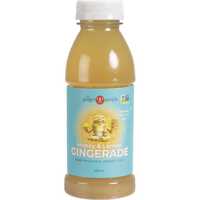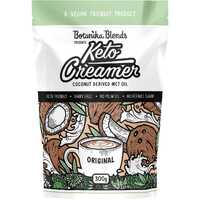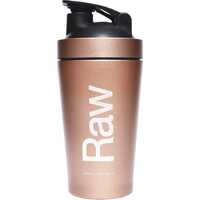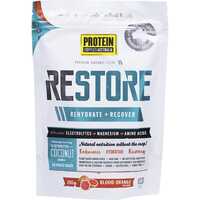If you've been to the gym lately or gone for a walk in your local park, you've probably seen people swilling down all types of sports drinks. From popular commercial products like Gatorade and Powerade to homemade protein smoothies and electrolyte-rich waters, there are lots of ways to maintain your fluids when working out. These functional beverages help to replace water, electrolytes, energy, and essential nutrients. Depending on the ingredients, sports drinks can be beneficial before, during, or after exercise.
Let's take a detailed look at modern sports drinks, from their unique history and beneficial ingredients to their nutritional and sporting value.
What are Sports Drinks?
Before we start, it's important to note one thing. We're looking at sports drinks in the wider sense, with protein shakes and powders reviewed alongside electrolyte-focused products. In this context, sports drinks include all functional beverages created to help athletes with their performance. From building muscle and boosting energy to replacing water and electrolytes, these drinks have a variety of performance and recovery-related functions.
Sports drinks are a type of functional food, which is defined by the European Commission as any food product that ‘affects one or more target functions in the body beyond adequate nutritional effects’. Beverages are among the most popular functional foods, thanks to their convenience, desirable nutrients, and bioactive compounds. Sports beverages are an efficient way to hydrate, and they're also an effective way to boost and reintegrate nutrients lost during physical activity.
From electrolytes and sugars to amino acids and herbs, sports drinks are a fast and easy way to boost energy levels and re-balance the body. Commercial sports drinks can be split into three major categories:
- Isotonic sports drinks have a similar concentration of salt and sugar to the human body. This is the typical sports beverage product.
- Hypertonic sports drinks have a higher concentration of salt and sugar than the human body. These drinks are advised post-workout.
- Hypotonic sports drinks have a lower concentration of salt and sugar than the human body. These drinks maximise hydration.
There is also a fourth category of athletic drinks, and these products are often made by athletes themselves by mixing protein powder with water, milks, or juices. Protein drinks help to boost muscle mass and aid the recovery process after exercise. In contrast to other sports drinks, they contain little to no carbohydrates.
A Short History of Sports Drinks
Sports drinks have a unique origin that stretches back to 1965. The assistant coach of the University of Florida football team, called the Gators, asked university physicians to study the team’s performance in the heat. Once the study was complete, it was discovered that athletes were not replenishing their fluids, electrolytes, or sugars fast enough. A new carbohydrate-electrolyte beverage was produced, and the Gatorade brand was born. After the Gators went on to achieve success in the following years, an entire industry was born.
The history of commercial protein drinks and supplements is even shorter, with bodybuilders and other strength athletes promoting them to the general population in the 1990s. There are now lots of protein-based drinks and powders on the market, with casein, hemp, and rice powders joining standard whey-based products. While protein is generally taken to boost muscle mass, it also has restorative qualities and aids significantly with recovery and repair. Some sports drinks and powders combine electrolytes with proteins to maximise the beneficial effects.
Common Ingredients in Sports Drinks
There are many sports drinks and functional fluids on the market. While they differ considerably in materials and messaging, most of them share a few common ingredients. Whether you're buying commercial sports drinks or making your own smoothies and juices from powders, the following nutrients define the modern sports drink industry:
Hydration
Before we go any further, it's important to recognise the importance of fluid itself to the human body. As you might expect, hydration is essential to life and fundamental to sporting performance. With the human body consisting of roughly 70% water, and exercise known to induce sweat, replenishing water should be a key concern for all athletes. When you get it right, water balance has a positive influence on physical endurance, power, strength, and recovery.
Healthy hydration is dictated by balancing water intake with water losses. Large quantities of water are lost during physical activity, so you need to do something about it. Drinking regular water during and after exercise is enough to replenish these losses, but this doesn't tell the whole story. We also lose sodium, chloride, and potassium when we sweat, so these things also need to be replenished. Sports drinks are designed to do just that, with some products also adding sugars, proteins, and caffeine to help boost performance.
Electrolytes
Electrolytes include a range of essential minerals that are vital to human health. Common electrolytes include sodium, calcium, chloride, magnesium, and potassium, all of which are lost through sweat. The most common ones found in sports drinks are sodium and potassium. Sodium helps to retain fluids, and potassium assists with muscle contraction.
From a technical perspective, an electrolyte is an electrically conducting medium that contains ions. A number of common substances fall into this category, including most soluble salts, acids, and bases. Among other things, electrolytes also help to balance pH levels and control nervous system function. When you don't have enough of these critical compounds, symptoms may include fatigue, headache, nausea, and muscle cramps.
Electrolyte drinks help to replenish important electrolyte concentrations following dehydration. Along with exercise, dehydration can also be caused by excessive alcohol consumption, diarrhea, vomiting, intoxication, starvation, or diaphoresis. Electrolytes are commonly found in sports drinks, but you can also get them from fruit juices, milk, nuts, fruits, and vegetables.
Sugars
Sports drinks often contain sugar, including processed sugars and popular alternatives like stevia. Due to its presence in sports drinks, sugar is often called an electrolyte. While this is incorrect, it's understandable given the close relationship between some sugars and electrolyte compounds. While sugar is not technically an electrolyte, it helps the body to absorb electrolytes and makes it easier for them to perform their various roles.
Along with assisting electrolytes, sugar is also included in sports drinks for one simple but important reason — to boost energy levels. Many commercial sports drinks contain 6%-8% sugar, with glucose, sucrose, and fructose all common. If you want to get the benefits of sports drinks without consuming excessive sugar, there are lots of sports powders on the market with reduced sugar content or healthy sugar alternatives.
Proteins
Protein is added to many functional fluids, including commercial drink products and nutritional powders. While popular sports drinks like Gatorade and Powerade have no protein content, there are many healthy alternatives that combine electrolytes with amino acids. Protein offers a range of benefits to athletes: providing a powerful energy source, helping to boost muscle growth, and aiding with the recovery process.
Nutritional powders often contain essential amino acids, which work together in different combinations to help with muscle growth and repair. Protein helps muscles to grow bigger and repair themselves when damaged. It also boosts the levels of peptide YY in your body, which helps you to feel full and avoid unhealthy food cravings. When combined with a healthy diet, nutritional powders and supplements can be a great way to boost your protein intake.
Caffeine and alternatives
Caffeine is famous for providing energy, at least in the short term. The right amount of caffeine can improve motivation, focus, and performance during a workout routine. Caffeine is added to many commercial sports drinks in an effort to boost energy levels and maximise performance gains. However, while it can be beneficial in moderation, caffeine is certainly not for everyone.
If you're looking for an energy hit without upping your caffeine intake, there are some much healthier alternatives. Some sports drinks and powders add herbal ingredients to induce a similar effect, or you can add your own and create a unique sporting beverage. Popular caffeine alternatives include guarana, maca powder, ashwagandha, schisandra berry extract, ginseng, vitamin B, and other vitamin and mineral formulations.
If you're looking for healthy sports drinks and powders to supercharge your fitness life, Healthy Being has everything you need. We have a variety of pre-made nutritional powders, as well as shakers and supplements, so you can make your very own sports beverage. So check out our website today and enjoy free shipping options across Australia and worldwide delivery!


 Certified Organic
Certified Organic Vegan Friendly
Vegan Friendly  Vegetarian
Vegetarian Organic Ingredients
Organic Ingredients Dairy Free
Dairy Free Gluten Free
Gluten Free Keto Friendly
Keto Friendly

































